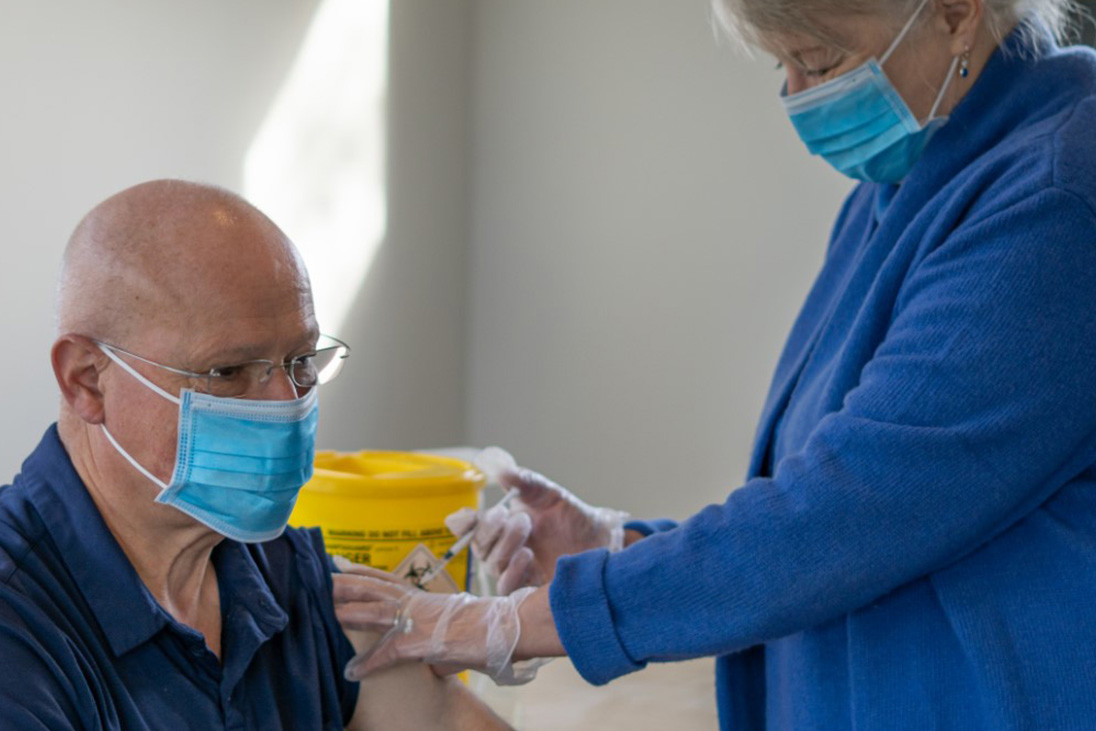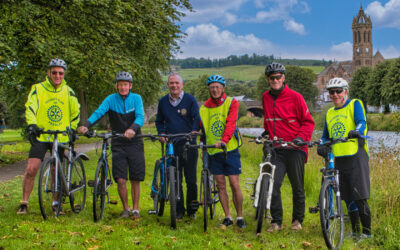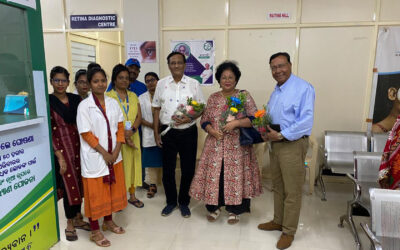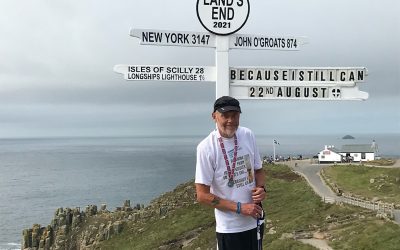There are the more obvious events such as earthquakes or flooding where volunteers can get right to the heart of a situation, or raise money for aid, as Rotarians across the world often do.
But our current coronavirus pandemic has provided a new set of challenges, and Somerset Rotarians have been there once again, ‘at the coal-face’.
So, what was it that brought them out of the ‘hibernation’ of lockdown, in their hundreds across the county, to assist at the biggest mass vaccination programme we’ve had, and what impact did it have on the Somerset community?
Nicki Scott, International Director of Rotary in Great Britain and Ireland, says: “I wasn’t in the least bit surprised that so many of our Rotarians stepped up to the plate.
“It’s in our culture – our very DNA – to give our time to deserving causes. Rotarians are accustomed to helping out with vaccination campaigns, such as our key involvement world-wide in the drive to eradicate polio.
“Many have in the past gone overseas to administer the vaccine, and most of us have been involved in raising money for this important cause. All this reflects our motto: ‘Service above Self’.
Rotary, every week running our car park and operations flow; and they are the first people our patients see when they enter the vaccination site and they are always friendly and cheerful – whatever the weather, from snow to 30 degree heat – always with a smile, regardless.”
“Rotary is a volunteer service organisation comprising 1.2 million men and women, and the infrastructure we have created through polio in volunteering time and personal resources, engaging communities, has helped us mobilise to assist in this covid pandemic.”
Richard Goring of Taunton Vale Rotary Club reflects: “We all have a part to play in getting society back to a more ‘normal’ pattern of life.
“Different agencies are often criticised in this country for a lack of ‘joined-up’ thinking, but I’ve seen great collaboration and communication.
“Staff in the NHS, local authority staff seconded to lead on logistics such as rotas and operational flow, volunteers who at the beginning turned up with everything from traffic cones to tents to try and keep those queuing undercover, and then volunteers such as local street pastors, altruistic individuals or representatives of organisations such as Rotary – all pulling together.
“What better feeling of being part of Somerset’s society could there be?”
The roles carried out by Rotarians are varied and include car parking, asking relevant questions about covid symptoms, handing out masks, sanitising, and guiding people through the vaccination stages.
Midsomer and Radstock Rotary Club’s Loraine Candy highlights that at the beginning of the vaccination campaign, her club provided solutions to some emerging logistical problems.
She says: “We contacted a local signage company and they turned around the order within a day, then volunteers put up signage on lamp-posts.
“It was rewarding to discover there were no more complaints from people who’d had an awful job finding the vaccination clinic.”
At some clinics at GP surgeries, Rotarians help with the registration process and ‘triage’ to direct patients to either the main surgery or to the vaccination area; in others, with the monitoring of people post-vaccination where, after the Pfizer jab, they are required to wait for 15 minutes.


Nurse giving a vaccine
This timing has to be monitored to keep the flow of patients going and avoid lengthy queues – often outside and in all weathers. And there is the important issue of checking in case someone looks as though they feel faint, or have an adverse reaction.
The assistance provided allows thousands of patients across Somerset to move safely through the system keeping socially-distanced; keeping patients and volunteers safe; minimising contact eg in the way masks are handed out (often with kitchen tongs!) and utensils and chairs sanitised and providing reassurance to numerous nervous patients – plus humour when there is an unexpected delay.
Rotarians in many of the 47 Rotary clubs in this district have given their time freely. Rotarian Tim Reed, for example, has volunteered for over 90 shifts. And since the start of the pandemic, District Governor Nominee for 2022/23, Ric Canham, volunteering at vaccination clinics and swabbing stations for students’ tests on their return to school has clocked up an amazing 6,961 hours!
It’s worth noting that not all Rotary volunteers are retired – a misconception that some members of the public appear to have. Many are working vaccination clinic shifts around their full-time work commitments.
Somerset Rotarians have been praised for their demeanour in working in what can be difficult conditions.
India Thomas, an NHS Operations Manager, was keen to praise the attitudes of the volunteers. “Rotary, every week running our car park and operations flow; and they are the first people our patients see when they enter the vaccination site and they are always friendly and cheerful – whatever the weather, from snow to 30-degree heat – always with a smile, regardless.”
However, we have the booster vaccination clinics and the regular flu jabs, so yes, there’s still a job to do. And Rotary is still out there!”
Friends and family have become involved because of knowing Rotarians ‘doing their bit’, and some because of being furloughed previously, with time on their hands.
“So many patients come up and thank us afterwards,” is the takeaway memory for Emma Clasby, a Rotarian’s daughter.
“Some are thoughtful enough to bring thank you cards and chocolates for staff and volunteers. Many can’t believe that so many volunteers are giving up their time for what are often long shifts.
“Especially at the beginning of the vaccination campaign, it really did give volunteers a chance to re-connect with others and much of this during a time when most people were still compelled to stay at home.
“We were very lucky in being able to go out and about during difficult times, and as a hairdresser, I’d missed talking to my customers.”
Penny Underwood, who helps at Bruton and Wincanton centres, adds: “There is quite a buzz at times in the queues (which are thankfully short for most, thanks to the smooth operations put in place). I’ve learned a great deal more about our NHS. And I feel extremely proud – of the NHS, and of other partners and Rotary’s key role.”
Rory O’Donnell, who was District 1200 Governor in 2020/21, says: ‘I think the volunteering effort has demonstrated to non-Rotarians and the younger generation that we can all help others, no matter how small the contribution, and that this particular effort truly makes a difference at this historic moment in time.
“As to personal benefits, going outdoors to the clinics made me feel human again after such a long time in lockdown at the beginning of the pandemic. Some patients were so excited they danced through the doors! I’ll treasure those moments.”
Dr Michael Fernando is the current District 1200 Governor and is a consultant paediatrician at Yeovil District Hospital. As a medic in a busy general hospital, he has seen the pandemic from numerous perspectives.
“Rotary’s involvement in the first tranche of vaccination clinics was amazing – but so typical of our organisation.
“I honestly don’t think the clinics could have operated so successfully without the help of so many volunteers – everyone pulling together and so focused on ultimately helping to alleviate the pressure on the NHS.
“However, we have the booster vaccination clinics and the regular flu jabs, so yes, there’s still a job to do. And Rotary is still out there!”










